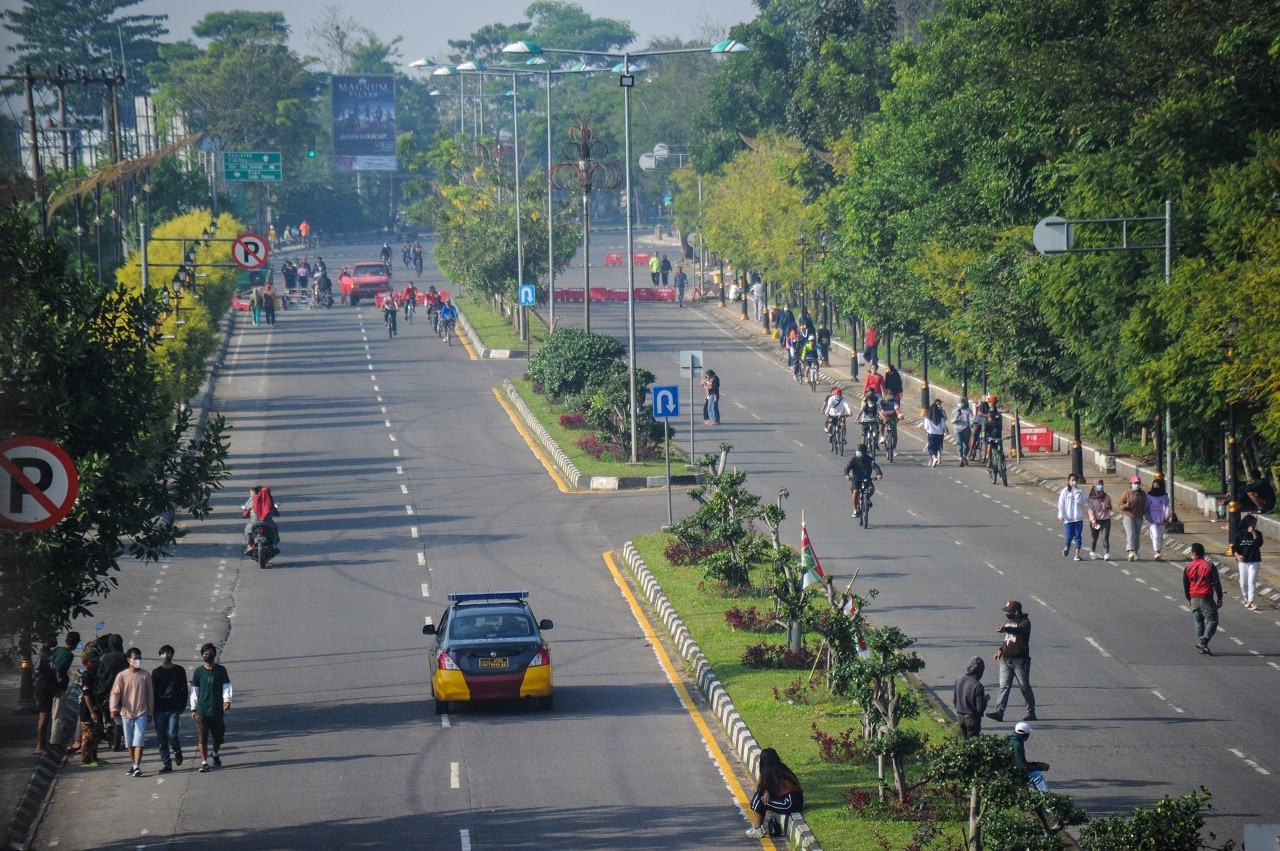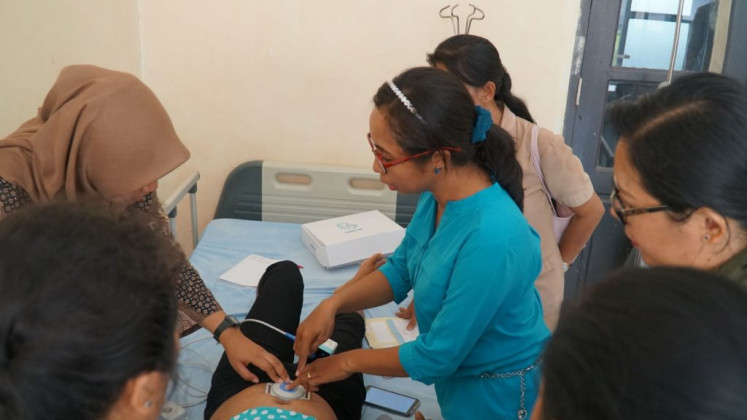Popular Reads
Top Results
Can't find what you're looking for?
View all search resultsPopular Reads
Top Results
Can't find what you're looking for?
View all search resultsShouldn’t we hit the brakes again?
The government is once again caught between the need to boost the economy, which is rebounding this year, and protect public health.
Change text size
Gift Premium Articles
to Anyone
W
ith three confirmed cases of the Omicron variant of the coronavirus, and given our knowledge about its virality and the struggle of many countries facing hundreds or even thousands of new cases each day, why is our government reluctant to take the steps necessary to prevent its spread?
Officials in charge of the country’s fight against the COVID-19 pandemic are making the right noise about the possibility of Omicron triggering a third wave in Indonesia, but they do not appear to be willing to walk their own talk.
An earlier plan to impose tighter restrictions on social mobility nationwide during the coming long Christmas and New Year holiday has been scrapped. Instead, tighter restrictions will be imposed case by case in provinces and regencies. And rather than imposing travel bans, the government is limiting itself to making public appeals to postpone all travel during the holiday.
Both Indonesia’s first and second waves of the COVID-19 happened precisely after long national holidays. The last one, after the Idul Fitri holiday in May, was particularly devastating with daily infection rates reaching 50,000 and death rates surpassing 2,000. Did we not learn anything from these episodes that mere appeals would not do? Bar a complete lockdown, which the government never had the courage to do, at the very least it could impose the tighter level 3 or 4 social mobility restriction mechanism.
The government is once again caught between the need to boost the economy, which is rebounding this year, and protect public health. It should be a no-brainer which of these two comes first, but the government appears to be relenting to pressures from the already COVID-19 fatigue-nation and the business community anxious to get back to business. And it is probably harder, at least politically, for the government to reimpose restrictions once they have been lifted.
The government is taking a huge risk in dismissing Omicron as an imported phenomenon. True that the three reported cases are confined to people in Wisma Atlet, which houses the COVID-19 quarantine facility for people coming from overseas. Two are Indonesians returning from South America and Britain undergoing mandatory quarantine, but the first case is a cleaning service worker without a history of foreign travel.
The COVID-19 national task force said after tracing 250 people who have had contacts with the three, 60 tested positive for COVID-19, but it must wait a few more days for the genomes sequencing results to know whether they have the Omicron variant.
The low number of Omicron cases, relative to what we see in many other countries, should not be a reason to be complacent. The national vaccine program may be making progress, now with 50 percent of the targeted 208 million receiving both injections, but even officials admit that two vaccine shots or even three with the booster may not be enough to protect us against Omicron, although Moderna and Pfizer have claimed boosters have increased protection against the new strain.
For all we know, the three reported cases could be just the tip of the iceberg, given our limited capability in tracing COVID-19 infection and that Omicron carriers are asymptomatic.
Lest we forget, complacency led to the deadly second wave in June, stretching our already limited health care capacity and our cemeteries.
We know Omicron is here with us, and we should not wait around for more proof about its extent and dangers before we hit the brakes again. Restrictions are needed to keep infection rate manageable by our hospitals. Let’s err on the side of caution.











